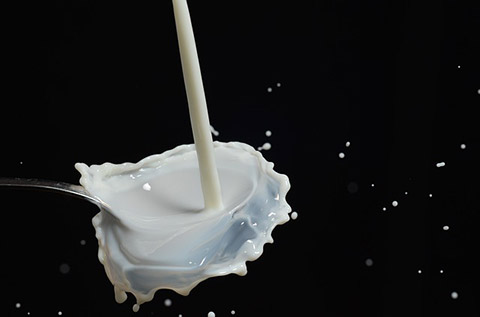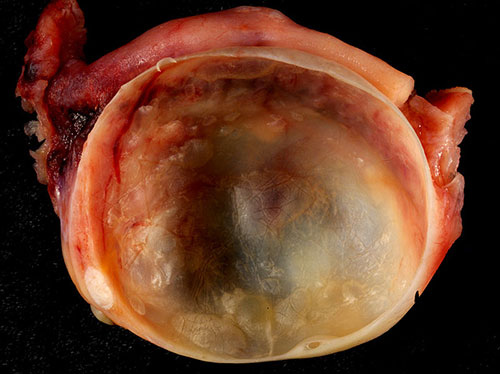If you’re trying to increase your chances of getting pregnant, what you eat can make a real difference. Certain foods provide essential nutrients that support hormone balance, improve egg and sperm health, and boost overall reproductive function.
A diet rich in whole foods like leafy greens, healthy fats, lean proteins, and antioxidants can support optimal ovulation and reduce stress levels. These are important for conception.
By focusing on fertility-friendly foods, you give your body the nutrients it needs to function at its best during this important time. Knowing which foods have the most impact can save you time and effort.
This guide highlights 11 of the best foods to increase your fertility and improve your chances of conceiving naturally.
How Diet Influences Fertility
What you eat affects your chances of getting pregnant. Certain nutrients, body processes like inflammation, and cell health all play roles in your hormone balance and reproductive health.
Paying attention to these can help support ovulation, conception, and a healthy pregnancy.
Key Nutrients That Affect Conception
Some nutrients have a direct impact on your fertility. For example, choline supports hormone regulation and healthy egg development, and you can find it in eggs and dairy.
Omega-3 fatty acids help your body reduce inflammation and improve egg quality. Foods rich in omega-3 include salmon, flaxseeds, and walnuts.
Zinc, selenium, magnesium, and iron are essential for healthy hormone production and fetal growth. Pumpkin seeds, brazil nuts, hemp seeds, and red meat are good sources.
Making sure you get enough of these nutrients helps your body prepare for conception and supports early pregnancy development.
The Link Between Nutrition and Reproductive Health
Nutrition influences how well your reproductive system works. Poor nutrient intake can cause hormonal imbalances, which can stop ovulation or cause irregular cycles.
Eating a balanced diet with proteins, healthy fats, and fiber supports good hormone production and cell function in your ovaries and uterus. Diets high in high-fat dairy have been linked to better fertility outcomes, possibly because of their effect on hormone balance.
A healthy gut also supports your reproductive health. Foods like garlic and onions help your gut bacteria produce substances that protect your body and regulate hormone levels. Consider taking probiotics and magnesium supplements.
Impact of Inflammation and Oxidative Stress
Inflammation and oxidative stress can damage your eggs and disrupt hormones. Antioxidants found in fruits, vegetables, nuts, and seeds help protect cells from harm.
When your body is out of balance, harmful chemicals may build up, interfering with ovulation and conception. Foods that reduce inflammation, like omega-3s and sulfur-rich vegetables such as garlic and asparagus, support your body’s natural detox processes.
By minimizing oxidative stress through diet, you lower the risk of infertility and improve your chances of a healthy pregnancy.
11 Best Foods to Increase Fertility
Eating the right foods can support your reproductive health by providing key nutrients like folate, protein, iron, healthy fats, and omega-3 fatty acids. These nutrients help improve egg quality, balance hormones, and support ovulation.
Including nutrient-rich options in your diet gives your body the building blocks it needs for fertility.
Leafy Greens and Spinach
Leafy greens like spinach, kale, and swiss chard are rich sources of folate, a vital nutrient for egg development and early fetal growth. Folate helps with DNA synthesis and cell division, which are essential for conception.
These greens also provide iron and magnesium, which support overall reproductive health and reduce inflammation. Regularly eating leafy greens can help regulate your hormones and improve blood flow to reproductive organs.
You can add them easily to salads, smoothies, or cooked dishes, making them a simple way to boost fertility.
Eggs
Eggs are a powerful fertility food due to their high protein content and key nutrients like vitamin D and choline. Vitamin D helps regulate reproductive hormones, which can improve your chances of ovulation.
Choline supports fetal brain development and overall egg health. Eggs also contain antioxidants that protect your eggs from damage.
Eating eggs regularly can help improve egg quality and provide a steady supply of nutrients your body needs to prepare for pregnancy. Try including eggs in your breakfast or meals to support fertility.
Beans and Lentils
Beans and lentils are excellent plant-based sources of protein, fiber, folate, and iron. Folate supports healthy egg growth, while iron helps build a strong uterine lining, making it easier for an embryo to implant.
The fiber in these foods also helps balance blood sugar and hormone levels. Incorporating beans and lentils into your diet can support ovulation and reproductive health.
They are versatile and can be added to soups, stews, or salads as a protein-rich alternative to meat.
Fatty Fish and Salmon
Fatty fish like salmon are high in omega-3 fatty acids—especially EPA and DHA—which play a critical role in reducing inflammation and improving blood flow to reproductive organs. Omega-3s help balance hormones and regulate menstrual cycles.
Salmon is also a good source of protein and vitamin D, both important for reproductive health. Eating wild-caught salmon a few times a week can give you these essential nutrients.
Including fatty fish supports egg quality and overall fertility naturally.
Fruits That Boost Fertility
Certain fruits provide nutrients that support reproductive health and hormone balance. Including these fruits in your diet can improve egg and sperm quality, which are important for fertility.
Berries: Antioxidant Powerhouse
Berries like blueberries, strawberries, and raspberries are rich in antioxidants. These antioxidants help protect your eggs and sperm from damage caused by free radicals.
They also supply vitamin C, which boosts hormone levels linked to fertility. Eating a variety of berries daily can help maintain healthy cells and reduce inflammation that may affect fertility.
Berries are low in calories but high in fiber. This helps regulate blood sugar, which supports hormone stability.
Adding berries to your breakfast or snacks is a simple way to improve your reproductive health.
Citrus Fruits: Oranges and Grapefruits
Citrus fruits such as oranges and grapefruits are excellent sources of vitamin C. This vitamin supports the health of your eggs and sperm by preventing cell damage and improving hormone function.
These fruits contain polyamine putrescine, which studies suggest can improve egg quality and sperm motility. You can easily add citrus fruits to your diet through fresh juice or sliced fruit in salads.
Besides vitamin C, citrus fruits offer potassium and beta-carotene. Both nutrients help with blood flow and antioxidant protection.
Avocados and Their Benefits
Avocados provide healthy monounsaturated fats that promote hormone production, including those related to fertility. These fats also reduce inflammation, which can improve your chances of conception.
Avocados are rich in potassium, which supports healthy blood pressure and circulation. They also contain beta-carotene, a nutrient that converts to vitamin A, important for egg development and sperm function.
Eating avocados regularly can support hormonal balance and overall fertility.
Nuts, Seeds, and Full-Fat Dairy Products
You can support your fertility by adding specific nuts, seeds, and dairy products to your diet. These foods provide important nutrients that help with hormone balance, egg quality, and overall reproductive health.
Walnuts and Omega-3s
Walnuts are a rich source of omega-3 fatty acids, which play a key role in fertility. Omega-3s help reduce inflammation in your body and support healthy hormone production.
This can improve egg quality and increase your chances of conception. Walnuts also contain vitamin E, which acts as an antioxidant and protects your eggs from damage.
Eating a handful of walnuts daily can boost your intake of these essential nutrients.
Chia Seeds, Sunflower Seeds, and Other Superfoods
Chia seeds and sunflower seeds are packed with minerals like selenium and zinc, which are important for fertility. Selenium helps protect your eggs and sperm from damage, while zinc supports hormone production and ovulation.
Chia seeds also provide fiber and protein, helping keep your blood sugar stable. Stable blood sugar levels promote a healthy reproductive system.
Adding these seeds to your meals can benefit your fertility through multiple nutrition pathways.
Full-Fat Dairy for Hormonal Health
Full-fat dairy products like whole milk, cream, and cheese contain calcium and vitamin D. These nutrients support hormone regulation, which is vital for ovulation and reproductive health.
The saturated fat in full-fat dairy may also improve the chances of ovulation by supporting hormone production. Choosing full-fat options instead of low-fat or skim products can be more favorable for your fertility.
You can safely consume full-fat dairy daily to add these nutrients to your diet while working to improve your fertility.
How Fertility Foods Support Ovulation and Hormone Balance
Your diet plays a direct role in improving ovulation and keeping your hormone levels steady. Certain nutrients help your body develop healthier eggs and create a better environment for conception and implantation.
Enhancing Ovulation with Diet
To support ovulation, your body needs key nutrients like folic acid and B vitamins. These nutrients help with egg development and cell division, which are vital for healthy ovulation.
Foods rich in folate—such as leafy greens and lentils—can improve egg quality. Vitamins C and E work as antioxidants to protect eggs from damage caused by oxidative stress.
Healthy fats, especially omega-3s found in fish and walnuts, also improve blood flow to your ovaries. Better circulation helps deliver oxygen and nutrients needed for egg growth.
This can be especially helpful if you have conditions like polycystic ovary syndrome (PCOS), where ovulation may be irregular or impaired.
Regulating Hormone Levels Naturally
Balancing your hormones is key to regular ovulation and fertile cycles. Nutrients like magnesium, zinc, and healthy fats support the production of hormones such as estrogen and progesterone.
Avoiding processed foods and refined sugars helps prevent insulin spikes, which can disrupt hormone balance, particularly if you have PCOS. Stable insulin levels contribute to steady ovulation and an environment that favors conception.
Incorporating whole foods like whole grains, nuts, and full-fat dairy can also maintain healthy hormone levels. These foods provide a mix of vitamins and minerals that support hormone regulation.
By focusing on nutrient-dense foods, you help your body produce and regulate hormones naturally for better reproductive health.
Practical Tips for Incorporating Fertility-Boosting Foods
Eating the right foods can help support your reproductive health and improve your chances of pregnancy. Balancing your meals with key nutrients and making mindful lifestyle choices are important steps to increase fertility naturally.
Meal Planning for Reproductive Wellness
Start by including a variety of fertility-friendly foods in your daily meals. Focus on leafy greens, whole grains, fatty fish like salmon, nuts, seeds, and full-fat dairy, which provide essential nutrients like folate, omega-3s, zinc, and antioxidants.
Plan meals ahead to avoid relying on processed foods. For example, prepare quinoa or brown rice in batches for easy use during the week.
Add avocado slices or berries to breakfasts, and include lean proteins or legumes like lentils at lunch and dinner. Keep healthy snacks on hand, such as almonds or dark chocolate, to maintain steady energy levels.
Drinking plenty of water and limiting caffeine and alcohol can also support hormone balance important for both female and male fertility.
Lifestyle Factors That Enhance Fertility
Your diet works best when combined with healthy lifestyle habits. Regular exercise helps improve blood flow to reproductive organs and supports hormone regulation.
Aim for 7 to 8 hours of sleep, as restful sleep is essential for ovulation and sperm production. Manage stress through activities like meditation, yoga, or journaling since ongoing stress can disrupt fertility.
Avoid smoking and limit alcohol intake to moderate levels or less. These changes contribute to overall reproductive health and increase your chances of conceiving.
Focus on a balanced approach that includes both nutrition and these lifestyle habits to support your body’s natural fertility processes.
Frequently Asked Questions
You can improve your fertility by focusing on specific foods and nutrients that support reproductive health. Certain eating habits and nutrient choices help balance hormones and enhance egg and sperm quality.
What are the top foods recommended for enhancing fertility in women?
Leafy greens like spinach and kale, fatty fish such as salmon, whole grains, nuts, seeds, and berries are top fertility foods. These provide folate, omega-3 fatty acids, antioxidants, and other nutrients that promote healthy ovulation and egg quality.
Which dietary strategies can boost fertility for couples seeking twins?
Eating foods rich in dairy, healthy fats, and folate may slightly increase your chance of conceiving twins. While a nutrient-dense diet and maintaining a healthy weight can support multiple births, genetics is still the most important factor.
Are there specific foods that help increase male fertility?
For your partner’s fertility, encourage him to eat foods high in zinc, selenium, antioxidants, and omega-3 fats. Eggs, nuts, seeds, lean meats, and fatty fish can help support sperm health and hormone balance.
What nutritional advice is available for improving fertility naturally in your thirties?
In your thirties, focus on a balanced diet with plenty of folate, vitamin D, omega-3s, and antioxidants. Eating whole foods like vegetables, fruits, lean proteins, and dairy can help support egg quality and hormonal balance.
How can diet affect a woman’s fertility and chances of conceiving more quickly?
What you eat can influence your hormone levels, ovulation, and egg health. Choosing nutrient-rich, whole foods helps stabilize insulin, reduce inflammation, and provide essential vitamins and minerals to support conception.
What are the essential nutrients to focus on in a fertility-enhancing diet?
Folate and other B vitamins are important because they help your body produce healthy eggs and support hormone balance. Omega-3 fatty acids can improve egg quality and support hormone production.
Zinc, iron, and selenium are minerals that help your reproductive system work properly. Antioxidants like vitamins C and E protect your reproductive cells from damage.
Including these nutrients in your diet can support your fertility and overall reproductive health.



